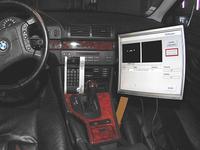-
Day of wide-spread domestic drone use nears
So far, the U.S. Federal Aviation Administration( FAA) has issued 266 active testing permits for civilian-drone applications, but has yet to allow drones wide-scale access to U.S. airspace; law enforcement and industry officials say that it is only a matter of time before the FAA would allow the more than 18,000 law enforcement agencies and departments to begin to use drones for surveillance
-
-
Psychemedics receives additional FDA clearances for hair analysis drug testing
Psychemedics developed a technology, using FDA-cleared radioimmunoassays (RIA), for the detection of drugs of abuse, and says it was the first laboratory to receive FDA clearances ten years ago for screening assays used in hair testing for drugs of abuse; the technology detects cocaine, opiates, PCP, methamphetamine, and marijuana using enzyme immunoassay (EIA) analysis of head and body hair
-
-
Manchester, New Hampshire police orders 250 X2 ECD
Manchester, new Hampshire police department deploys 250 TASER X2 ECD, the largest such deployment in New England
-
-
California bill prohibiting use of license plate readers dies in state Senate

Facing growing pressure from law enforcement agencies in the state, and a concerted effort by technology and insurance companies, the sponsors of a bill which would prohibit the use and storage of License Plate Recognition (LPR) data, decided not to bring the bill to a vote on the California Senate floor
-
-
Why the perception persists that undocumented immigrants cause more crime
Undocumented immigrants in the United States do not commit more crimes than native-born Americans, yet the perception persists that they do; researchers found that the belief that undocumented immigrants cause crime was due in part to the perceived population size of the immigrant community overall: if individuals perceive undocumented immigrants to be a larger proportion in the population, they are going to perceive undocumented immigrants as posing a higher level of criminal threat
-
-
Mantis shrimp could inspire new body, vehicle armor

The unique and highly complex structure of fist-like club of mantis shrimp could transform materials used to create military body armor and vehicle and aircraft frames
-
-
New eyewitness identification procedure flawed: psychologist
University of California-Riverside psychologist finds that new eyewitness identification procedures may result in fewer correct IDs; the new procedures may, under some circumstances, lead to identification evidence that is less accurate than the identification evidence from the procedures they are designed to replace
-
-
EF Johnson named to DHS TacCom supplier group
TacCom is a multiple award Indefinite-Delivery, Indefinite-Quantity (IDIQ) contract established in 2012 to help DHS purchase a full array of tactical communications products, infrastructure, and services for mission critical, public safety communications; the total funds spent on equipment through this contract may not exceed $3 billion, inclusive of options
-
-
Alabama on the 9-1-1 forefront -- again

The first 9-1-1 call in the United States was placed in Alabama more than forty years ago; now, Alabama is on the 9-1-1 cutting edge again by replacing its TDM call routing with a IP-based and Next Generation 9-1-1 (NG9-1-1) solution; the new system supports voice as well as text, images, video and other IP-based requests for emergency services
-
-
Safety profiles protect people, pets, and emergency responders
Sixty-three percent of all U.S. households have a pet, the highest level in two decades; there are 78.2 million dog and 86.4 million cat owners, with more than half stating they would leap into action for an injured pet; registering pets in the owner’s safety profile would allow for safer, and more successful, rescue by first responders during emergencies
-
-
Rescue dogs from across U.S. to participate in certification exercise
Rescue dogs and their handler teams must be re-certified every three years; the certification includes command control, agility tests, barking alert skills, and willingness to overcome fears of tunnels and wobbly surfaces under the guidance of the handler
-
-
Private, public partners in Illinois CBRN emergency drill
First responders and authorities in Lake and Cook counties, Illinois, joined Army Reserve units to conduct Exercise Red Dragon 2012, a chemical, nuclear response exercise
-
-
Silkmoth inspires novel explosive detector
Scientists, imitating the antennas of the silkmoth, Bombyx mori, designed a system for detecting explosives with unparalleled performance; made up of a silicon microcantilever bearing nearly 500,000 aligned titanium dioxide nanotubes, the device is capable of detecting concentrations of trinitrotoluene (TNT) of around 800 ppq 1 (that is, 800 molecules of explosive per 1015 molecules of air), thus improving one thousand-fold the detection limit attainable until now
-
-
Students build slingshot-driven test for artillery shells
The current method the U.S. Air Force uses to study the behavior of artillery shells causes these shells to be destroyed in the process; the Air Force wants to know more about the behavior of artillery shells as they accelerate and decelerate – and Rice University students invents a device to stop high-velocity projectiles without destroying them
-
-
Using mathematical modeling to predict burglary patterns
Pattern formation in physical, biological, and sociological systems has been studied for many years; despite the fact that these subject areas are diverse, the mathematics that describes underlying patterns in these systems can be surprisingly similar; mathematical tools can be used to study such systems and predict their patterns
-
More headlines
The long view
Why Ukraine’s AI Drones Aren’t a Breakthrough Yet
Machine vision, a form of AI, allows drones to identify and strike targets autonomously. The drones can’t be jammed, and they don’t need continuous monitoring by operators. Despite early hopes, the technology has not yet become a game-changing feature of Ukraine’s battlefield drones. But its time will come.
